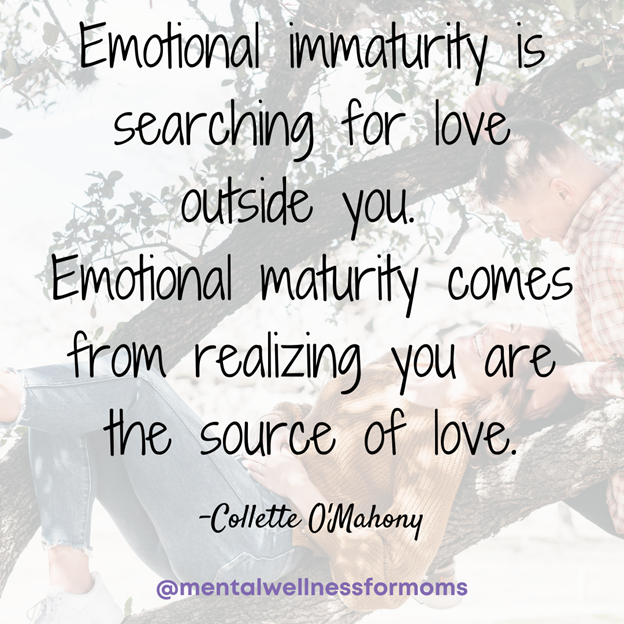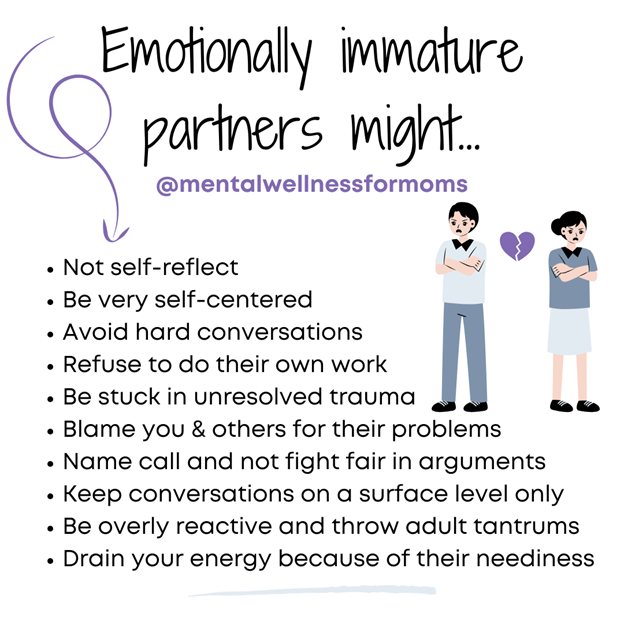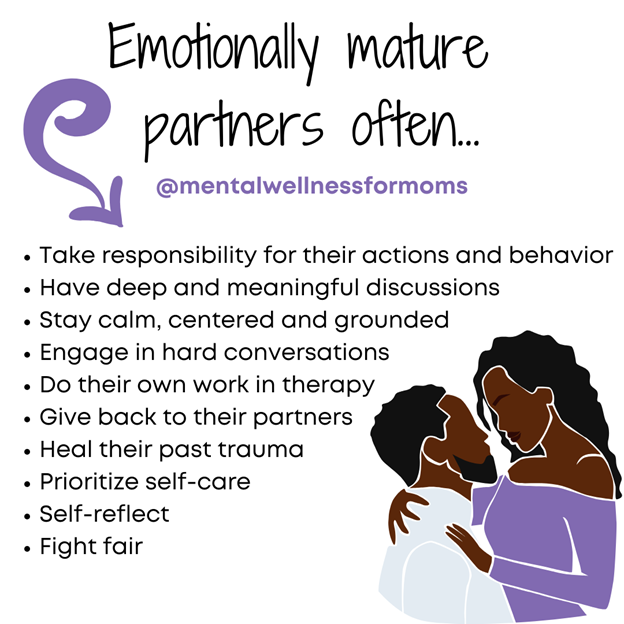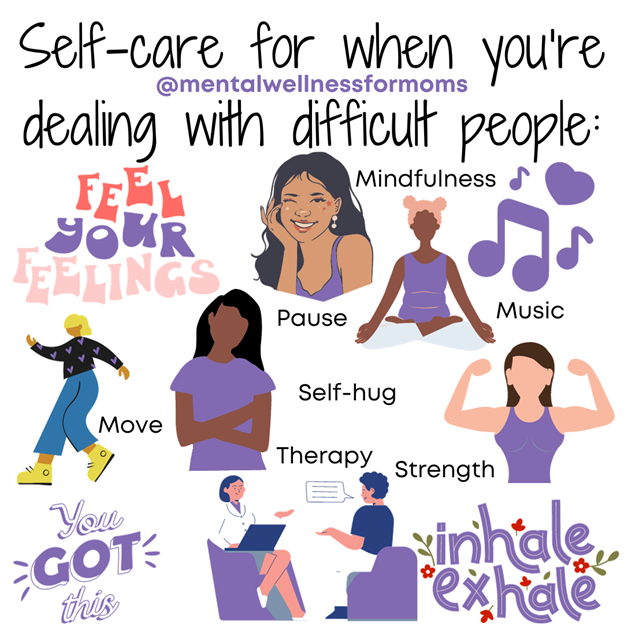

Emotional immaturity is searching for love outside you.
Emotional maturity comes from realizing you are the source of love.
-Collette O’Mahony
The hope if you’re in a long-term relationship is that your emotional connection with your partner becomes stronger over time, the longer you’re together. Which paints a great picture, right? But, the nature of relationships is that they tend to have many ups and downs, as you and your partner grow and change over time.
The hope is you’re growing and changing at the same pace. But, at times, one of you might out pace the other. If this happens, you’ll most likely experience some heightened emotions like anger, fear, resentment, etc. around the fact that your partner’s emotional growth has stalled, and what it might mean if they don’t catch up with you.
- Will you out grow them?
- Will you stay together?
- Will you go your separate ways?
Lots of big questions here! Let’s dive a little deeper into this concept of emotional maturity versus immaturity…
Emotionally immature partners might:
- Be overly reactive and throw adult tantrums
- Avoid hard conversations
- Be very self-centered
- Be stuck in an unresolved trauma cycle at the age when the trauma happened
- Blame you and others for their problems
- Name call and not fight fair in arguments
- Refuse to do their own work in therapy
- Not self-reflect
- Keep conversations on a surface level only
- Drain your energy because of their neediness and childlike behavior
What else would you add here?
Emotionally mature partners often:
- Stay calm, centered and grounded, even when faced with other people’s emotional reactivity
- Engage in hard conversations that require openness and vulnerability
- Heal their past trauma and break generational trauma cycles through this healing
- Prioritize self-care and taking good care of themselves first
- Take responsibility for their actions and behavior
- Fight fair in arguments and remember to stay on the same side as their partner to avoid becoming adversaries
- Do their own work in therapy
- Self-reflect
- Have deep and meaningful discussions with others
- Give back to their partners and to the relationship as a whole
Which ones resonates most with you?
Self-care for when you’re dealing with difficult people:
- Breathe in, breathe out
- Process these distressing interactions in therapy
- Focus on mindfulness and your five senses
- Tighten and release your muscles
- Hug your body with your arms/hold your own hand
- Come up with a great mantra like, you got this or this too shall pass
- Hum your favorite song or sing it to yourself in your head
- Move around- even if it’s just shifting your weight from foot to foot
- Pause before you say or do something you’ll regret later
- Feel your feelings
What else helps you when you’re dealing with difficult people?
It’s not easy to deal with other people’s emotional immaturity, especially if that other person is an adult. Although we can all be immature at times, pervasive immaturity can be very hard to deal with long term. Know that you’re not alone in your current life struggles. I’m sending lots of love and support your way as you navigate the difficult people in your own life today.




